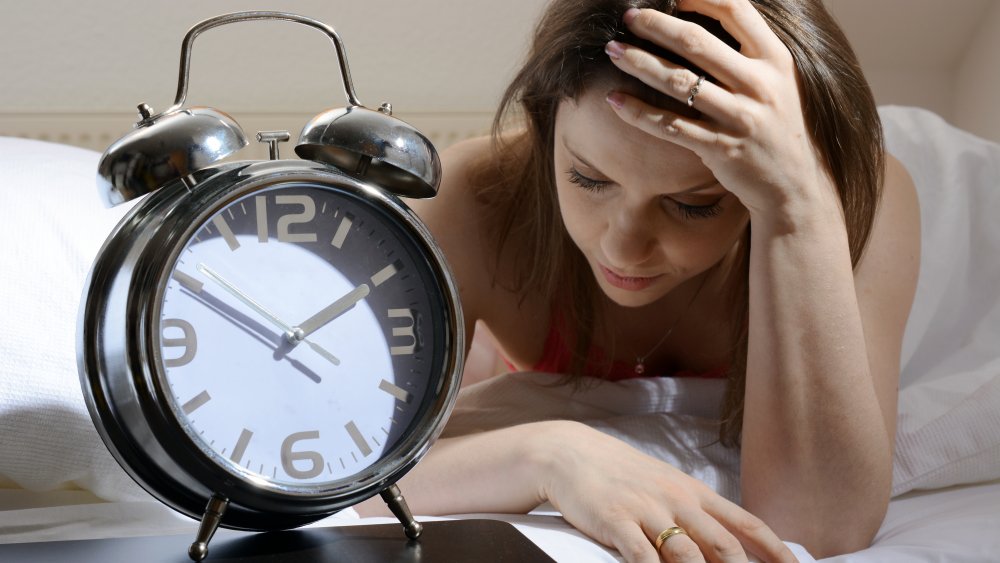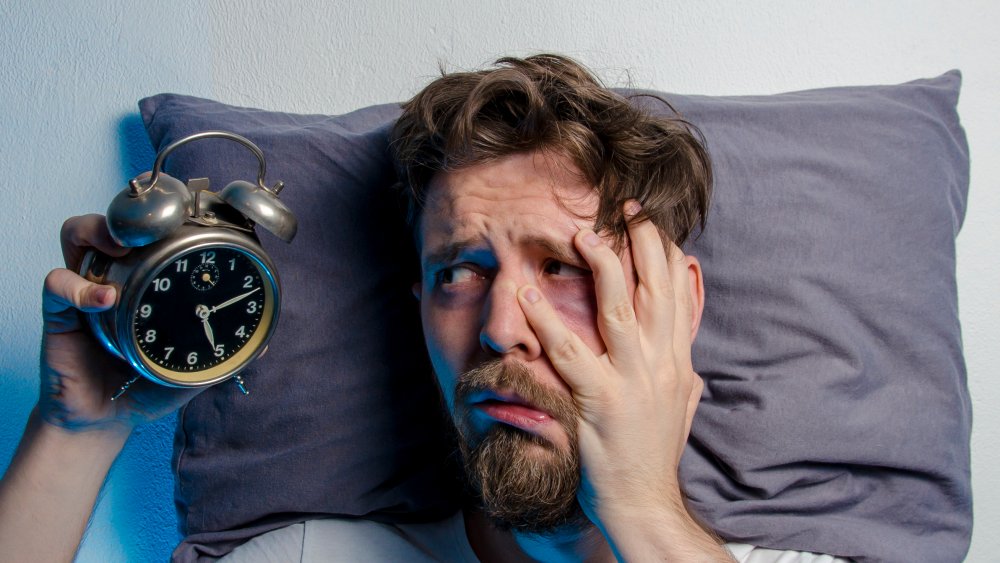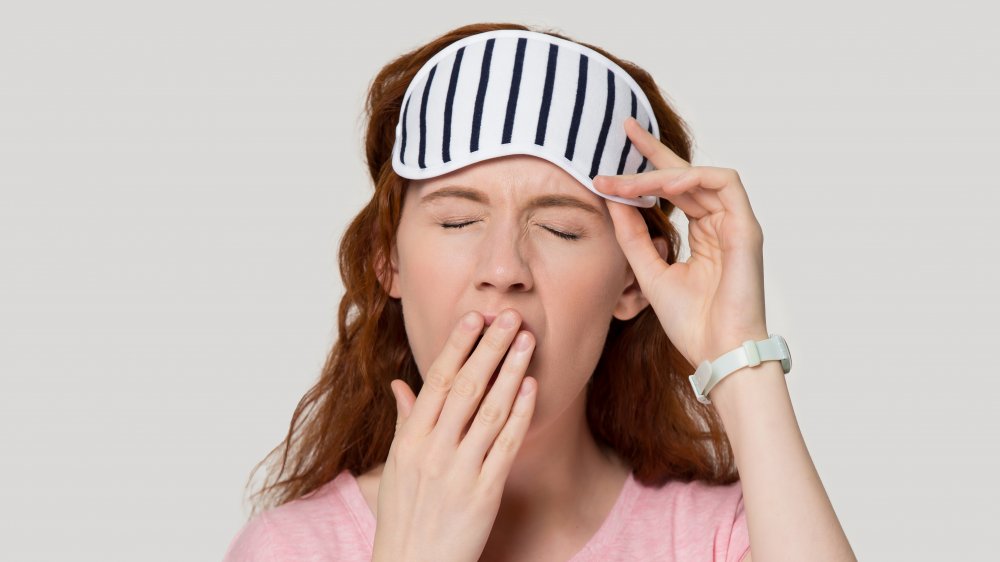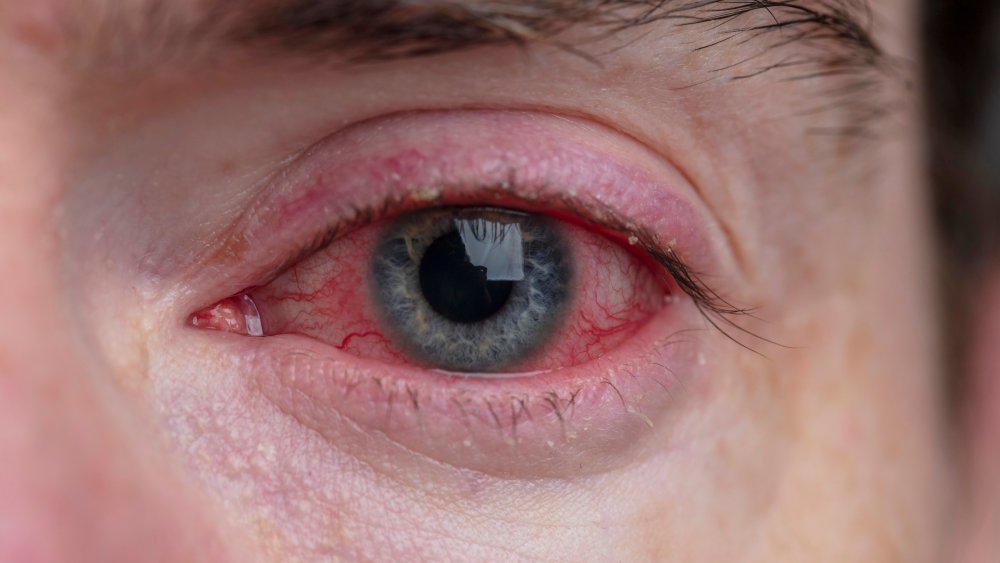How Long Can You Live Without Sleep?
There are many things a human body simply can't do without. A lack of food, water or air can easily kill us in awful ways, but there's another, stranger danger that most people don't really think about: Not being able to sleep. Oh, sure, we're all technically aware that we should get that eight hours of shut-eye per night. Still, while we all occasionally end up watching five hours of kite-boarding videos on our phone instead of visiting the land of dreams, it's not like going without sleep for an extended time can really kill us ... r-right?
Wrong! It turns out there's a reason why we need to fall asleep at regular-ish intervals, and if we won't (or rather, can't) do it for long enough, the lack of sleep will eventually kill us. Argh, you know what? Let's take a minute to find out just how long we can live without sleep, just to make sure that we don't literally drop dead halfway through our next 48-hour Netflix marathon.
You can go a surprisingly long time without sleep
Fortunately, it turns out that you can mainline a fairly long TV show before it kills you. As Healthline tells us, the longest a human being has gone without sleep is 264 hours, which is a bit over 11 straight days. That being said, it's decidedly not a good idea to see how close to that limit you can get. While it's not uncommon to miss a night of sleep, staying awake for 24 hours leaves your brain wallowing in a drowsiness equivalent of a blood-alcohol content of 0.1. From there, it only gets worse. After just three to four consecutive sleepless nights, your life would get extremely interesting, and not in a good way. You might experience hallucinations, various "cognitive impairments" and delusions, and even full-on paranoia and psychosis ... not to mention good old tired grumpiness, which presumably doesn't exactly lessen as the sleepless nights pile up.
Fortunately, it's extremely rare to actually die of sleep deprivation, and most people will just shut down after 72 hours or so.
Can sleep deprivation kill you in the long run?
Hey, wait a minute. If there's even the slightest chance that sleeplessness could potentially kill us in the long run, what about accumulated lack of sleep? What if, and we emphasize that this is purely theoretical, someone habitually catches two, three or five hours too little sleep because of their habit of just lounging around and playing on their phone until it's suddenly 4 a.m. somehow? Would the long-term sleep deprivation prove lethal in the long run, or could they just shake it off and keep watching Animaniacs?
While habitually skimping on Slumberland hours might not kill you in a "bang, you're dead" sense, if it goes too long there's a chance that long-term undersleeping could open you up to a whole bunch of nasty ailments and health conditions. Sleeping too little might play a part in obesity, as well as type 2 diabetes. It will certainly not do any favors to your cardiovascular system, and could result in heart disease, high blood pressure, or even a stroke. Oh, and because lack of sleep plays havoc on your brain (more on that in a moment), it could also lead to mental illness. So, yeah, maybe try to get that beauty sleep after all. The cat videos are still going to be there tomorrow.
What happens when you try to stay awake for extended periods of time?
As anyone who has pulled an all-nighter can likely attest, your brain goes a little funny once you push beyond your natural circadian rhythm. After only 24 straight hours awake, your memory, hearing and vision all become unreliable narrators, and while you're not yet in the land of hallucinations, your senses and sensibilities are still somewhat impaired. You're going to be touchy, drowsy, tense, and prone to unwise decisions. If you're really lucky in your immersive sleeplessness experience, you might even get the occasional tremor.
Things get really interesting at the 36-hour threshold, where some of those really creepy effects we mentioned earlier start to take hold. Apart from all the other weirdness, your metabolism, appetite and temperature are also likely to be scattershot, and it probably goes without saying that your mood and stress levels are not going to be the greatest.
The longer you stay awake, the more your body opposes the idea
After 48 hours awake, your body and brain are officially done with your crap. Your persistent awakeness makes your immune system lose the plot, and your body starts to straight up rebel against you and your persistent ways. As a result, at this stage many people start to experience "microsleep:" Involuntary, short naps where your brain just decides to shut you down for maybe half a minute, leaving you disoriented and confused as you jerk back to consciousness. We imagine the experience is not unlike the scene in Matrix where Neo wakes up in the real world, only multiple times a day.
72 hours is where many people just eventually drift away to sleep, as their brain decides that enough is enough. For the unlucky few unable to do that, it's hallucination and emotional turmoil time. You might see inanimate objects and think it's a person, and your sheer amount of sleep deprivation makes it borderline impossible to think straight, let alone function normally. All in all, it doesn't sound like an experience we'd recommend.




